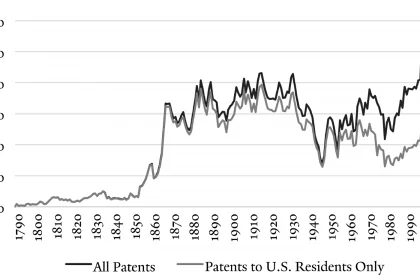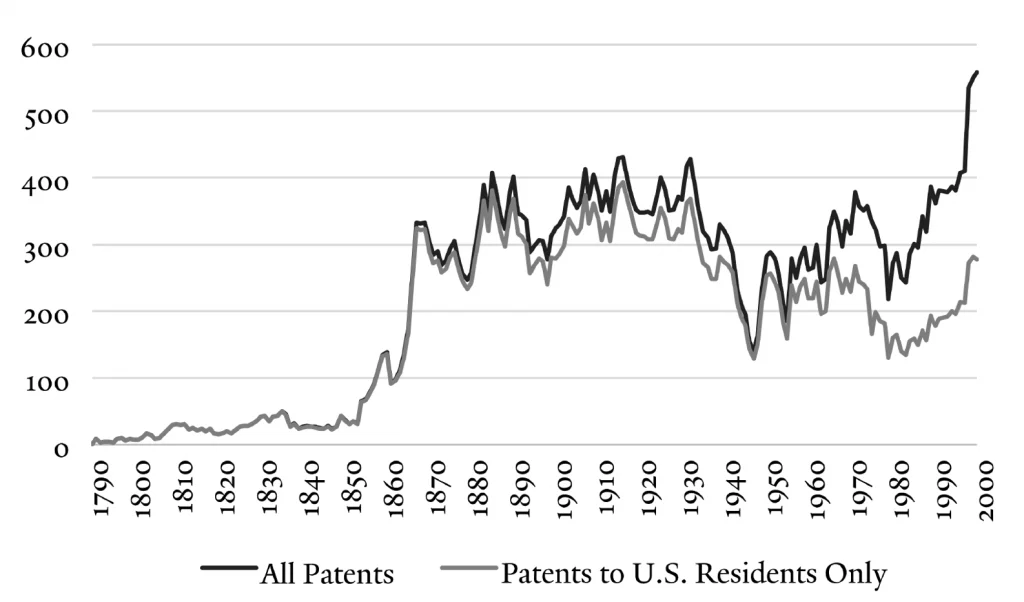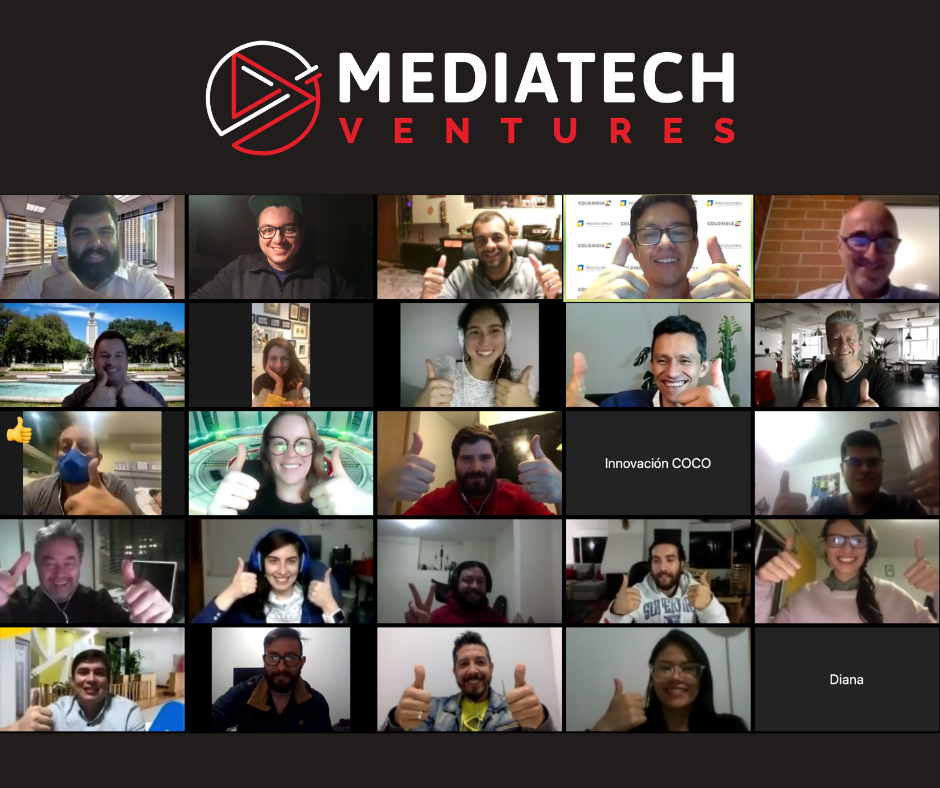
How do I sell a startup that has a validated solution yet neither users nor revenue?
Among the primary FAQs within startup incubators and of advisors, is how do I get my product funded? You know the question through the variety of ways in which it emerges:
- How do I raise startup capital for my idea?
- I have a patent for the product we’d like to commercialize, how do we get investors?
- How do we get acquired the SaaS web app that we built?
Through MediaTech Ventures and our work with universities and economic development offices in countries throughout the world, we frequently encounter brilliant founders with products built, often underwritten development thanks to the government, hoping to get the product sold or company funded.
Why does it seem so hard to get such things funded? How does one sell a startup that put Product first?
Not easily, if at all.
The 1800 & 1900s left a horrible legacy on entrepreneurship; the notion that an idea or even a finished product is worth a lot.
It isn’t. It never has been. It wasn’t even in the 1900s.
What happened before the turn of the millennia was that ideas and products were worth more because of fabricated monopolization of IP, thanks to governments that would protect such developments at the behest of companies.
As human history emerged from mercantilism through the industrial revolution, we witness the Company become the dominant business structure. Armed with lawyers and political lobbies, Companies set about ensuring that any old idea they had was protected, and by extension, products, recipes, and inventions held the same protections.
These protections fabricated value.
An aside, don’t let me mislead you. Of course, such protections started to exist well before the Company and the emerging legal and economic changes of the industrial revolution. The U.S. Patent Office was created in 1790, for example, largely to make it clear that ideas and works were “not a privilege bestowed from a monarch” but indeed owned and therefore protected by the creator. My point is that it was with the explosion of the Companies in the mid-19th century that we saw the race for parents and protections accelerate
The Double-Edged Sword of Patents
As the Industrial revolution evolved humanity from tradecrafts and localized production, manufacturing, supply chains, and shipping emerged, requiring far more capital, coordination of human resources, and organization of process, to produce and move goods throughout the world. This led to the boom of the Company structure, and with it, much more pressure from companies to force their governments to protect their so-called intellectual property and products.
Immediately following that, we witnessed the quantity of Patent filings explode
The Industrial Revolution was the transition to new manufacturing processes in Great Britain, continental Europe, and the United States, in the period from about 1760 to sometime between 1820 and 1840.
So, appreciate the clear correlation. Many will argue that Patent protections exploded because it was an era of great invention and innovation.
And that’s true.
But what is also true is that humans have always invented and innovated. It wasn’t until the Company, Lawyers, Lobbyists, Crony Capitalism, and Politicians conspired that people started fabricating value in mere ideas.
The impact on the world today is evident in your question.
Entrepreneurs throughout the world continue to lead pitches with, “I have an idea and a patent, who will invest in that?”
- Universities have massive commercialization offices merely to license and make money from the inventions of students and faculty
- People hold portfolios of patents they’ve acquired, merely to litigiously pursue any infringement of their owned patent, making millions for doing nothing more than holding a government protection of the idea
- Founders are encouraged by lawyers and advisors to secure a patent, as though a patent does anything at all to make a successful company (or that a startup could even afford to defend a claim on the patent in court)
- And countries, not just yours but throughout the world, hope to help their entrepreneurs make something of the brilliant minds of their country, with a product ready to go.
And yet none of that, NONE of that is actually any real value.
Read that quote again, more or less backwards.
Since everything a company does except marketing and innovation is a cost, that means marketing and innovation creates the value.
The thing doesn’t. The idea doesn’t. A patented idea, or for that matter an idea, is actually worthless. The government protections of something are what fabricate value; extrinsic value — that although the protection makes it valuable, that doesn’t mean it’s actually of any value at all.
The market does. And ongoing innovation of the solutions provided enable a product to retain and continue creating value.
A customer created is an indicator of success.
A customer created is evidence of value from developing the market and innovating ongoing.
Economist Peter Drucker even noted this, “Business success is not determined by the producer but by the customer.”
What you have is a thing that you think has value or is likely unique in the world, but the idea of the thing and the production of that thing, is worth only what it takes for someone else to create the same thing — the nominal cost of recreating it.
Any other impression of value is because society has been misled by the last 150 years, that the idea and the product are valuable: they’re not, that’s a fabrication thanks to legal protections put in place by governments.
In a global economy, one in which such protections are meaningless across most borders, we start appreciating this fact. Many countries throughout the world culturally encourage their society to copy and recreate other ideas and products — why? Because the thing itself really isn’t worth anything; it’s what is done with it that is valued in the market that is worth something.
Look at our patent chart again, into the 1940s: a slight trough. The world didn’t cease innovation, what happened was the World Wars of the early 20th century opened countries up to the world as never before and people discovered the value in ideas shared rather than horded. As communication between people throughout the world increased, innovation flourished but efforts to protect those innovations waned, relatively, since people realized the protection itself was rather futile, if not hindering people elsewhere in the world from benefitting.
This is the world in which Drucker grew up and from which his observations in the 1970s, as an adult, were made. That, these ideas and products aren’t really what’s creating the value in the world — it’s the market and continued innovation.
Notice what happened again, after 1990, in that patent chart.
The revolution of our economy again to The Information Age. The dawn of the internet.
Indeed, the internet gave rise to another explosion of new ideas and inventions, and it’s because of that and the persistence of the Company that the race was again on to fabricate value.
And sure, people have made billions thanks to the innovations of the internet, but as a moment in time, at the Idea or release of the Search Engine, the CRM, the Social Network, a SaaS Solution, etc., was the thing worth anything? No. Not at all.
Had those inventions failed to continue innovating, they’d be left behind, and perhaps even gone (see MySpace, Yahoo!, Geocities, and on). Did those products protected prevent competition elsewhere in the world? No, of course not. The only thing that created any value at all in all of those ideas and products was that they developed a market, customers, by doing the marketing to create and maintain value.
So, what then is the value of a validated SaaS Solution with no users or revenue? Not much, if anything at all. What needs to be done is a company and market created — that’s what’s valuable.
Troublingly, we continue to see this kind of question and these hopes throughout the world. I help run a Market Entry Program that develops the early entrepreneurs and products of the people of countries throughout the world, in cohorts (groups), into real value.
The number of Founders, economic development offices, government officials, companies, and universities, who persist in saying, “we have a product, how do we get funding for it?” is astronomical. It’s misplaced, misled, and thanks to 150 years of mistaken legal precedent, unfortunate.
You don’t get a startup sold on a product and validation alone. What you have is some engineers who made a thing because it seems like a good idea. Without the market, competitive advantage, and a roadmap for ongoing growth and innovation established by marketing, you haven’t created much value.









Excellent insights, Paul! Nice addition of the great Peter Drucker and his timeless wisdom.
I find that observations put in historical context tend to make them a little more understandable and relatable. I’ve had people ask how his work from the 70s is relevant in the modern, internet era. If anything, it’s more meaningful now than ever.
https://seobrien.com/peter-drucker-decades-later-perhaps-more-relevant-to-the-21st-century
Thanks for sharing this. I’m stuck, but I’ll start working harder on getting more people to recognize what I have. I understand I need a large market of customers who are willing to find my inventions interesting to them. I know who the type of market (interested people) in relationship to every invention idea that I have. I know who to gain interest from (from the market) for every individual invention idea that I have. Thanks for the post. I am going to gain some trust from the market for my invention ideas.
Perhaps, focus on partners before funding. Start thinking “company” not invention. Fundable ventures and even mere ideas always have teams involved. Find those people that complement your skillset, experience, and focus, and you might find the others who can fill the gaps in what has you stuck.
Your absolutely correct. I should ask you what type of documents should I use to sell, offer, and prove (show and impress) to companies?
Of course I would be pitching my inventions to them.
An NDA won’t work just by itself.
Careful that mindset as well… NDAs are another point of view that the world is increasingly realizing turns founders upside down
https://mediatech.ventures/nda-or-traction-there-can-be-only-one/
Nicely written Paul. As I have been working on my start up for a while now, I will ask if there is a benchmark to shift acceptability to the investment world, ie; Proof of Concept. I have tried to access Media Tech Ventures for about 10 days now and still am waiting to be allowed access.
Your comment gave me pause so I checked. This is you, isn’t it? https://mediatech.ventures/profile/alan-brunton/
You’re on site, approved; so, what do you mean waiting on being allowed access?
Is there a benchmark to acceptance into the investment world? I presume you mean Angel or Venture Capital investment. It’s not well exposed and socialized because most VCs are happy to meet at least once, to share this, but a founder could have trouble getting that coffee if the effort clearly isn’t fundable.
Investors have to get their return, and in startups (private companies) that happens only through an Exit (getting acquired or going public). Startup investor portfolios have to absorb an exceptional number of losses, and unlike investing in public companies, losses in startup investments are total losses. Understandably then, startup investors also need their investments to deliver (typically) 15x of the investment made.
Then founders can ask, is it apparent in the market (on social media, through our team, in the press, through word of mouth, or with partners, that our startup communicates such potential?
The game industry is still struggling with this because the customers have gotten sold on it too. Way too many customers don’t want to be involved in the early stages and disappointments. They just want the end result.
That’s not a bad thing though, that’s the gaming industry painfully learning what the startup industry already knows but still struggles to get sunk into founders’ brains – MVP: the minimum product (the product) release, has to viably meet customer expectations. Do NOT release anything before that’s the case ?
Love this, Paul O’Brien. Spot on.
re: “Armed with lawyers and political lobbies, Companies set about ensuring that any old idea they had was protected, and by extension, products, recipes, and inventions held the same protections.
These protections fabricated value.”
Not to get off topic, but for the record, this isn’t true Capitalism. This is Crony Capitalism and has little if anything to do with actual market-based Capitalism. It’s funny how many people champion Capitalism, who are actually in favor of Crony Capitalism.
Moral of the story, when someone uses the word Capitalism, pause them and ask, “How do you define that?”
If something hasn’t been brought to market yet, doesn’t mean it has no intrinsic value, it just means it hasn’t generated it yet. Borrowing from physic, we could say IP has no “kinetic value”, just potential.
Orherwise what would we have to make of research? Would it be all worthless as well, given that all it generates is validated ideas, but no customers?
Thanks Courtney
Love love love your “economic development led” approach. We’re speaking the same language, and I think few are, that if we really hope to help entrepreneurs (and venture investors) we need to help everyone appreciate that it is the broader economic policy and impact that helps the most ??
Mark, My man
This is a frequent point among my Quora community and economic / political discussions (I have there, less so here).
When Government is on the take, in any way, enabling monopolies, neglecting crimes or social injustices, bailing out companies or executives, that is NOT “Capitalism,” that’s our Reprentatives failing to do what we expect of them.
Government makes and enforces rules. It’s way past time we stop blaming people and companies for related failings. Yes, we should judge those who are criminal but it isn’t “Company” at fault alone if the Government is enabling or ignoring it. Crony Capitalism doesn’t exist without a Crony – the party making the rules is the greater at fault.
Marcello Intriguing.
Though, it doesn’t necessarily have potential. In fact, most I find don’t have potential and were wasted efforts.
And no, research doesn’t just validate ideas. The research to be done before building anything is historical, competitive analysis, who are the investors?, How realistic is an exit and by whom?, Costs of operating various models, testing audience and demand gen channels, what constitutes a competitive moat?
Thinking about your take, I’d say most product first Startups are like rockets on a launch pad when all that has been researched is that a rocket could get you to the moon. Potential? No, that’s just an illusion, most people can see it isn’t going to get off the ground.
Michael That’s not a bad thing though, that’s the gaming industry painfully learning what the startup industry already knows but still struggles to get sunk into founders’ brains – MVP: the minimum product (the product) release, has to viably meet customer expectations. Do NOT release anything before that’s the case ?
That’s why I find it such a shame that many studios have shifted to automated testing, when I was in AAA QA played a key part in play/focus testing. You can’t automate fun.
Way too many devs/dev team members still believe in the “creative artist vision” vs gathering feedback
Paul O’Brien “need funding to validate” my last patent, I will present a PoC at SEMANTiCS Vienna, is a new tecnology and I have the opportunity to do a Proof of Priciple with accademic centers. We are lucky that it is in a mathematical domain and we have the budget for starting the research.
Real patents have multiple aspects, not just business benchmark
Marcello Majonchi what kind of ideas need funding to validate them?
I certainly don’t believe in the latter, that startups only get funding if bootstrapped to customers. Can be difficult to discern my view from one article; I write a lot about validation, marketing, and how customers are misleading.
What I’m saying here is that the expectation of funding (or acquisition) based on the product, is misled.
I’m wracking my brain now trying to think of an example of an idea that would need and warrant funding, to validate that doing something about it is worthwhile. What do you have in mind?
Well that’s bloody encouraging isnt it ? 😉 I’m back to Walmart then to dream what could have been. Stare at those shiny “Thumb Spinners” and ponder, ” Who the hell backed these????” ( Just making light of it all, but some interesting views Paul O’Brien 🙂
Interesting thoughts. I don’t disagree. Having said that, there’s another side of this preponderance of importance on the product. It’s value is also diminished if it isn’t repeatable. For example, the vast majority of venture funded startups fail (75%+), because they’re focused on product (from which they believe revenues are generated). It’s the belief that the product is the sufficient condition for success. However, even if the product is a success – at least in revenue terms (through marketing) – they’re stuck with that product because they lack the PROCESSES to repeat that product success. The game industry, in particular, is guilty of this. We’re full of “one-hit-wonders”, which are then milked ad nauseam, without repeating that success with a new (original) product. Sure, they can generate a lot of wealth, but it’s only for a few (the developers are typically left out in the cold).
I would like to add that the investor ecosystem you describe to Alan Brunton to also fatally flawed. However, that is another discussion.
If I don’t write in a way that provokes some thoughts and even disagreement, I’m not happy with myself.
There is truth to the adage, “If you’re pissing people off, you’re doing something right!”.
A product without revenue generation is essentially a hobby. Then with revenue it’s a product that can eventually become a company. And if you focus on building a scalable company, that is when you can get funding. Lots of hard work to get there.
“Because the thing itself really isn’t worth anything; it’s what is done with it that is valued in the market that is worth something.”
100%. Anything is eminently fundable with the right huckster behind it. Ironically what’s economically valuable, is being able to convince others you have something that’s valuable. Whether that’s societally or morally profitable, is another question. But generally, that’s the way it is.
That all said, I don’t believe “hype first, solution second” startups create net value for society. They suck up resources, confuse customers, create vaporware and disappointment.
Mark Biw Agreed and reiterates my frequently written/discussed point that Marketing != Advertising/Promotion.
Not “hype first, solution second”
Marketing first, solution second
Hype, or promotion of that, comes much later and only after it’s evident there is something worth the hype (promotion)
A patent generally stipulates that the product exists.. and if the market is moving in that direction it can be valuable in risk reduction.. let’s suggest that academia has discovered an important biomarker that researcher Bob improves about 5 levels of complexity on in secret.. the patent assures that AstraZeneca won’t copy Bob with its division of factory scientists and market a crappier product with 10x the budget knowing they’ll eventually catch up to Bob that way..
Bob won’t magically turn up $150k or more to fight off AstraZeneca with the patent-in-hand.
Bob still has to market his magical argo drug to boost corn output (for example). Bob needs to hit net profit to reasonably demonstrate market value and when he can afford $150k as about 5% of operating revenue then he can get some multiple on his revenue in fees from AstraZeneca for damages.
Could AstraZeneca arrive at a same outcome with a different method? Yes. But it would require them to actually innovate and if you’re betting that AstraZeneca only has factory scientists reliant on a market of copying people upstream in the IP supply chain because you’ve seen it.. then you doubt they’ll be able to do it easily.
Could AstraZeneca circumvent the patent by instead deploying the same drug in Africa where there is no enforcement of the patent (or in Germany?)? Yes, because Bob likely has no funds to secure the international patent. Go have fun in Africa, AZ.
That’s where Bob can layer on trade secret protection. He can stall AZ from understanding his patented product further, even after deploying to market.
You say Bob is an idiot, but if Bob can get hired by AstraZeneca and Bob can’t innovate and be compensated for it but instead be stolen from if he comes out transparently with his thoughts.. what is Bob to do?
A recent example is that Microsoft / GitHub released this Co-Pilot product. In my opinion they could have achieved a better product with heuristics but seem to rely on N-Grams and a license they have to all GitHub code. The auto-complete suggestions rarely come very close to what I want and more or less only function to help me from getting distracted. I am 100% sure there is a smaller team working on a more bonafide solution that is better but because of marketing dollars Microsoft was able to command interest in a product like this. GitHub marketed this co-pilot product like it could truly help auto-complete your code. It doesn’t. I have seen this happen again-and-again. These big co’s release crap to stomp out an evolving competitor in a space where they think they can make money.. they steal, they market, they improve over time until people forget about it. Same happens in most power centers.
What is Bob to do?
I don’t say Bob is an idiot. I say the cost of filing a patent at Bob’s stage, is the wrong priority and wasteful of his resources. I say that society has been led to believe that that patent is protection and that with it, what he has in mind is more valuable – and that that’s not true. You’re giving western world examples and overlooking the fact that China, for example, could care less about that patent or any legal costs to fight it out in the U.S.
“These big co’s release crap to stomp out an evolving competitor in a space where they think they can make money.. they steal, they market, they improve over time until people forget about it.”
100%
AND… advisors, lawyers, and even investors, incessantly arguing that a Patent will protect you from that happening, very clearly, given the last 100 years and your own passionate frustration with Big Cos, are wrong.
If that sage advice was correct, you’d not have these scenarios and wouldn’t be asking what Bob is to do ?
The Company, and Lawyers, with Government, fabricated value in ideas/products, through Patents. Essentially, before 1860, this approach didn’t exist. How did innovation, entrepreneurs, and startups possibly succeed before then?
The Information Age and Globalization has proven that the entire effort is b.s. Anyone, anywhere in the world, can and will compete with that, and patents don’t prevent countries where they don’t care. Plus, if a founder/startup can’t afford to work it out in court, the patent is irrelevant; and a costly use of resources that could be better utilized than filing and fighting.
What is Bob to do is a bigger question. I know the answer in my world, Media, and I acknowledge and support the answer certainly isn’t the same in something like BioTech. But that doesn’t negate the bottom line that the patent protection just isn’t the right priority.
Having a tech background and coming from a a strong “product is paramount” working culture, I am learning the importance of those aspects (thanks Andrea Ridi and Andrea Caridi). Still this article hit me hard! Really enjoyable!
Glad I could throw a punch that landed. Hope it helps and didn’t hit too hard ?
Paul O’Brien Yup! 🙂 I should also add, that there is also a load of people who are “anti-Capitalism”. No. They are likely anti-Crony Capitalism. Unfortunately, they don’t understand the difference (i.e., The Crony version is effectively the antithesis of Capitalism). That misunderstanding ultimately, sadly, serves as a distraction, which ultimately allows Crony Capitalism to persist. Note: Politicians are great at perpetuating this foolishness. Surprise!
I’m not going to argue the value (or not) of Capitalism, at least not today. But I’m also not foolish enough to use Crony Capitalism as a reference point to spread pro or anti Capitalism ideas.
What’s the right approach?
I’m a proponent of sharing this spectrum with people:
Innovation > Technology > Invention > Idea
* Ideas require execution to become an invention
* An invention without value is waste; with value, it’s technology
* Technology in and of itself though doesn’t remain valuable, that requires innovation
cue the old Peter Drucker quote about marketing and innovation. What makes the difference in that spectrum? Marketing. Left requires marketing whereas right is absence of marketing.
A “product” lacks context so it could be innovation, technology, or invention. And without context, it’s not fundable can’t know if it’s disruptive, valuable, or waste. Likewise, an idea, is a figment of imagination, only clinically insane people fund ideas.
The right approach is team and marketing first, product and solution second.
I suspect that you’ll appreciate this thread that Marketoonist, Tom Fishburne, and I have been pushing
https://www.linkedin.com/posts/paulobrien_keep-pushing-i-think-were-almost-at-product-market-activity-7274478644931039233-O7lD/
[…] governments cannot protect intellectual property in an age where AI and globalized digital access make information impossible to contain. Copyrights, patents, and proprietary content are constantly being replicated, altered, and shared […]